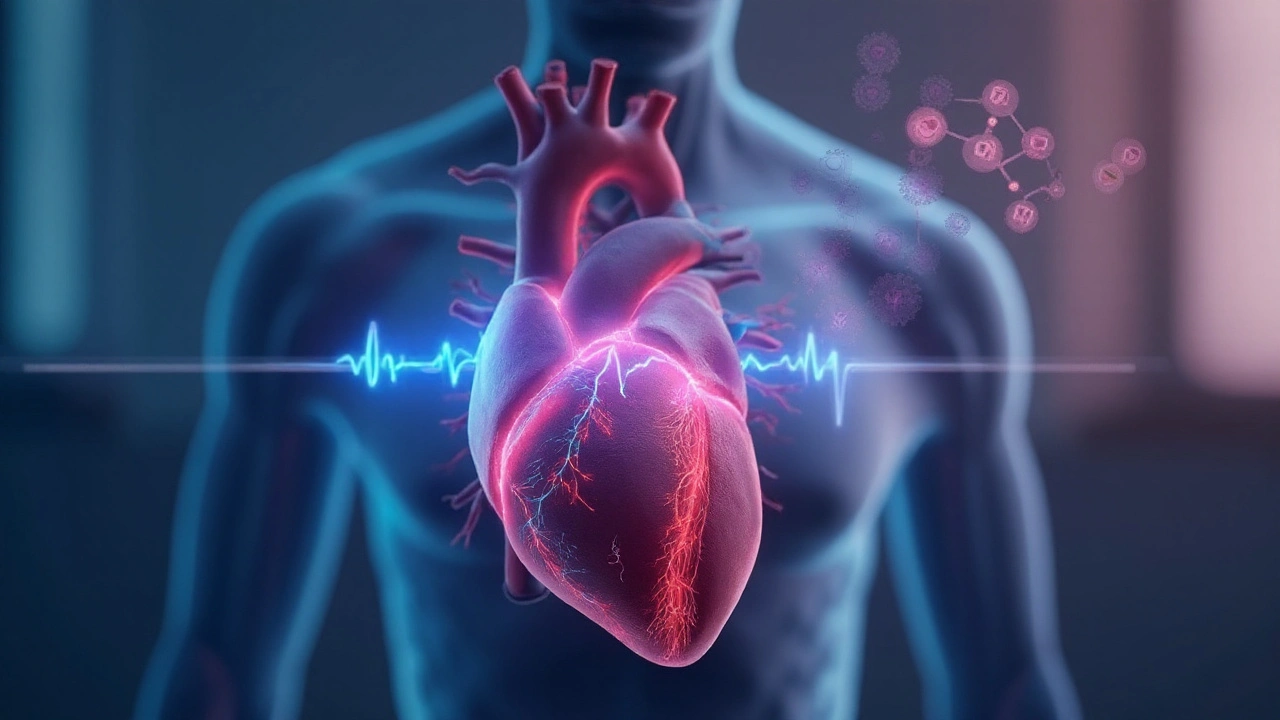Amiodarone — what it treats and what to watch for
Amiodarone is a powerful medicine used to control serious heart rhythm problems, like atrial fibrillation and dangerous ventricular arrhythmias. Doctors choose it when other drugs haven’t worked or when a quick, reliable rhythm fix is needed. It can help stop fast, irregular beats, but because it’s strong and long-lasting, you’ll need regular checks while you’re on it.
How amiodarone works and who gets it
Amiodarone works mainly by slowing electrical signals in the heart so the rhythm becomes steadier. It’s not usually a first choice for mild rhythm issues — it’s for more persistent or severe cases. If you’ve had repeated arrhythmias, fainting related to rhythm problems, or if other meds failed, your cardiologist might suggest amiodarone.
One practical thing to know: amiodarone stays in the body for weeks to months after stopping. That means side effects can appear or persist long after the last dose. Keep that in mind when planning surgeries, other meds, or pregnancy.
Safety checks and side effects to watch
Because amiodarone can affect the lungs, thyroid, liver, eyes, and skin, your doctor will ask for baseline tests before you start: a chest X-ray or lung function test, thyroid blood tests (TSH/free T4), liver tests, and an ECG. Many teams also suggest a baseline eye check. After you start, expect follow-up blood tests and symptom checks every few months — typically thyroid and liver tests every 3–6 months and lung checks if symptoms appear.
Know these common and serious issues: it can cause lung inflammation (shortness of breath, cough), thyroid problems (both underactive and overactive thyroid), liver enzyme changes, a blue-gray skin tint in sun-exposed areas, and corneal deposits that affect vision. It can also slow your heart rate. If you get new shortness of breath, persistent cough, sudden vision changes, or unexplained tiredness, contact your doctor right away.
Drug interactions matter. Amiodarone can increase levels of drugs like warfarin, digoxin, and some statins, raising bleeding, heart, or muscle risk. New medicines you start should always be checked against amiodarone — bring a full list to every visit.
Practical tips: carry a list that says you’re on amiodarone, avoid excessive sun exposure and use sunscreen, tell any other doctor or dentist before procedures, and don’t stop the drug abruptly without medical advice. If you plan pregnancy or breastfeeding, discuss alternatives — amiodarone has long-term effects and is usually avoided unless absolutely necessary.
Finally, ask your cardiologist about the monitoring schedule and what signs they want you to report. With careful follow-up, many people get the rhythm control they need while minimizing risks.


